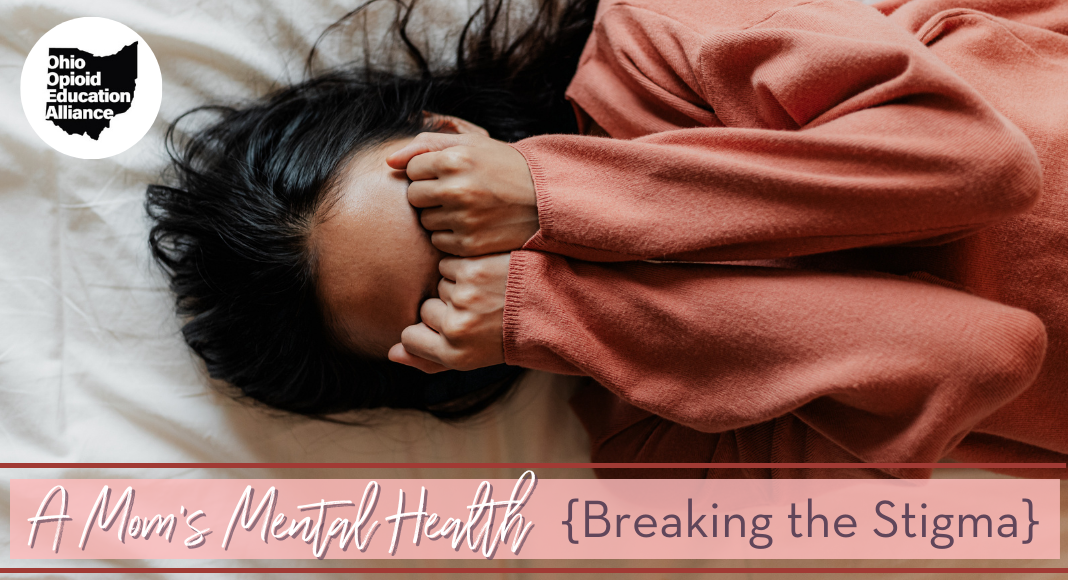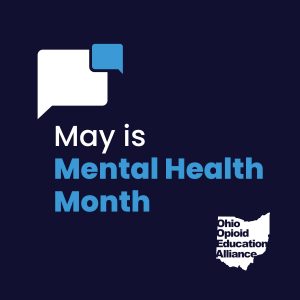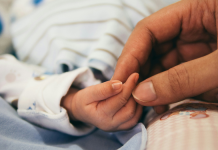 When I had my first daughter in 2017, I dealt with many of the typical emotions that accompany first-time parenthood. The first thought I had was, “How on Earth do these medical professionals think I am prepared to leave this hospital with a newborn?” I was not prepared in the least for how a mom’s mental health is affected by all that goes into bringing a child into this world. Once we were home, fears of caring for our baby set in fast, the largest fear being SIDS (Sudden Infant Death Syndrome). The first night we were home from the hospital, I was lying in bed with my brand-new baby girl, physically unable to go to sleep.
When I had my first daughter in 2017, I dealt with many of the typical emotions that accompany first-time parenthood. The first thought I had was, “How on Earth do these medical professionals think I am prepared to leave this hospital with a newborn?” I was not prepared in the least for how a mom’s mental health is affected by all that goes into bringing a child into this world. Once we were home, fears of caring for our baby set in fast, the largest fear being SIDS (Sudden Infant Death Syndrome). The first night we were home from the hospital, I was lying in bed with my brand-new baby girl, physically unable to go to sleep.
I was so worried about what might happen to her that I just laid there holding her while texting my sister for any advice that she might have for me.
As the months passed, a new kind of fear overtook me; this time the thoughts were even more crippling. I would have thoughts about myself getting seriously ill and not being able to care for my baby. I convinced myself of pains in my body that I was sure at the time were life-threatening. Through tears, I told my family doctor about these thoughts, which was embarrassing for me to admit. I also explained that these specific thoughts and feelings were actually not that foreign to me. I had diagnosed myself a few years ago with something called medical anxiety. I have always had a habit of thinking the absolute worst about my own medical condition and have worked myself into tears thinking that whatever symptom I am experiencing is likely terminal.
more crippling. I would have thoughts about myself getting seriously ill and not being able to care for my baby. I convinced myself of pains in my body that I was sure at the time were life-threatening. Through tears, I told my family doctor about these thoughts, which was embarrassing for me to admit. I also explained that these specific thoughts and feelings were actually not that foreign to me. I had diagnosed myself a few years ago with something called medical anxiety. I have always had a habit of thinking the absolute worst about my own medical condition and have worked myself into tears thinking that whatever symptom I am experiencing is likely terminal.
As a mom, those fearful thoughts have become less about myself and more about my children.
It’s frustrating and defeating many days, but I have found that talking about my fears and concerns to individuals that I trust typically results in them calming me down and encouraging me to think through situations reasonably. Over time, I have grown to acknowledge that my mental health is extremely fragile and not something to be ignored. Keeping my negative thoughts to myself due to my own embarrassment is not healthy and not something to be ashamed of. I write this, because since opening up about my own mental health conditions, I have learned that I’m not alone and that many others are willing to share their own personal experiences once you make yourself vulnerable.
May is Mental Health Month, which is a perfect opportunity to educate ourselves on the various forms of mental illness and the services and programs available to individuals in our State.
The Ohio Opioid Education Alliance is a public-private partnership focused on raising awareness of the addiction crisis in Ohio. The Alliance is comprised of over 100 business, education, nonprofit, civic, and government organizations with their main objective being to challenge the mindsets of Ohioans, including reframing the approach to drug misuse prevention and eliminating stigmas associated with addiction and mental illness.
During the pandemic, the Alliance identified that Ohioans were struggling with much more and expanded their focus beyond opioids. According to reports, alcohol sales have surged, drug overdoses are spiking, and more Ohioans are reporting deteriorating mental health. This is so incredibly important to understand, and unfortunately, they’ve learned that Ohioans are not seeking the help they need or are unwilling to talk about the struggles they are experiencing.
One critical barrier to seeking help is stigma.
Stigmas are negative beliefs and attitudes about people or topics, and they’re unfortunately very common, especially when it comes to mental illness and addiction. Many believe that addiction and mental illness are choices, which leads people to discriminate and judge. In reality, mental illness and addiction are complex medical conditions with underlying causes. The stigma around mental illness and addiction often create shame for those struggling and keep them from seeking the help they need. I know that I personally felt ashamed and embarrassed when experiencing my own issues, which caused me to not want to talk about it to anyone. When I finally did, I realized that I had created my own barriers to getting better, and I realized I had placed a stigma on myself without even realizing it.
This month, the Mom Collective team and the Ohio Opioid Education Alliance are encouraging each of us to educate ourselves about mental health and continue to find ways to help #BeatTheStigma. Here are a few steps we each can take:
- Take care of your mental health. Mental health challenges can put you at risk for substance misuse.
- Check out this LIST OF RESOURCES to determine if you need help with your mental health.
- Take a moment to reach out to your family and friends to see if any of them have had any issues with their own mental health. Ask them about their experience. You may be surprised at how willing they are to talk about this, if you just ask!
- Take a mental health screening at MentalHealthScreening.org/RecoveryisBeautiful.
- Discover how to talk to your kids at DrugFree.org.
- Find ways to support children’s mental health at OnOurSleeves.org.
- Follow Ohio Opioid Education Alliance on Facebook, Twitter and Instagram.














